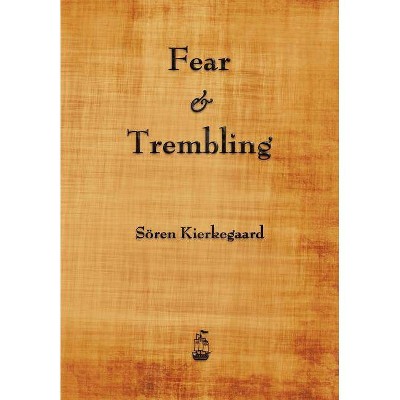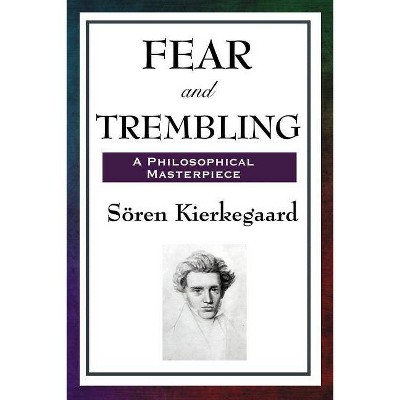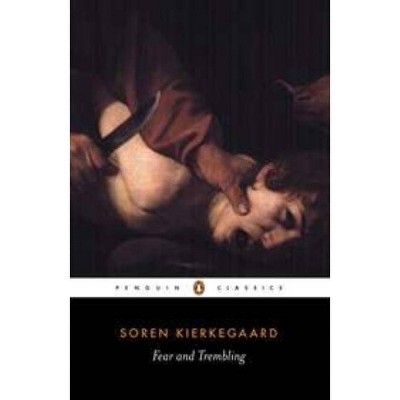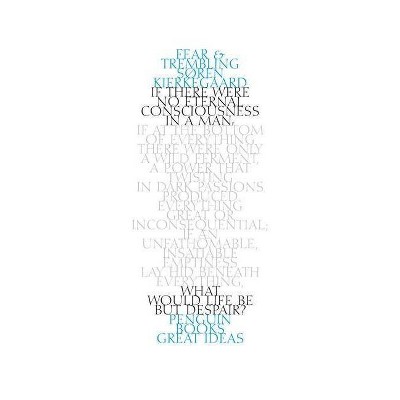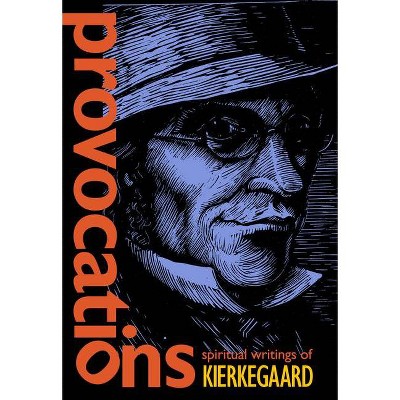Fear and Trembling - by Søren Kierkegaard (Hardcover)
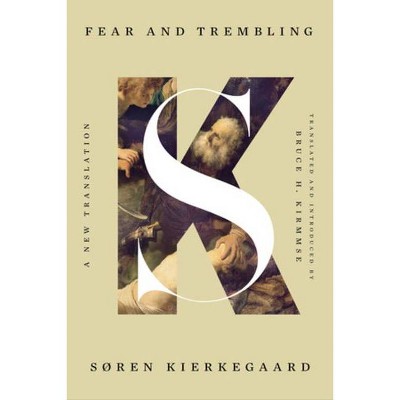
Similar Products
Products of same category from the store
AllProduct info
<p/><br></br><p><b> About the Book </b></p></br></br><p>This newly translated <em>Fear and Trembling</em>, a foundational document of modern philosophy and existentialism, could not be more apt for our perilous times.</p><p/><br></br><p><b> Book Synopsis </b></p></br></br><p>First published in 1843 under the pseudonym Johannes de silentio ("John of Silence"), Soren Kierkegaard's richly resonant <em>Fear and Trembling</em> has for generations stood as a pivotal text in the history of moral philosophy, inspiring such artistic and philosophical luminaries as Edvard Munch, W. H. Auden, Walter Benjamin, and existentialist Jean-Paul Sartre. Now, in our era of immense uncertainty, renowned Kierkegaard scholar Bruce H. Kirmmse eloquently brings this classic work to a new generation of readers.</p><p>Retelling the biblical story of the binding of Isaac, <em>Fear and Trembling</em> expounds on the ordeal of Abraham, who was commanded by God to sacrifice his own son in an exceptional test of faith. Disgusted at the self-certainty of his own age, Kierkegaard investigates the paradox underlying Abraham's decision to allow his duty to God to take precedence over his duties to his family. As Kierkegaard's narrator explains, the story presents a difficulty that is not often considered--namely, that after the ordeal is over and Isaac has been spared at the last moment, Abraham is capable of receiving him again and living normally, even joyfully, for the rest of his days. Almost inexplicably, "Abraham had faith and did not doubt."</p><p>Deftly tracing the autobiographical threads that run throughout the work, Kirmmse initially, in his lucid and engaging introduction, demystifies Kierkegaard's fictive narrator, Johannes de silentio, drawing parallels between Abraham's willingness to sacrifice his son and the author's personal "sacrifices." Ultimately, however, Kirmmse reveals <em>Fear and Trembling</em> as a fiercely polemical volume, designed to provoke the reader into considering what is actually meant by the word "faith," and whether those who consider themselves "true believers" actually are.</p><p>With a vibrancy almost never before seen in English, and "a matchless grasp of the intricacies of Kierkegaard's writing process" (Gordon Marino), Kirmmse here definitively demonstrates Kierkegaard's enduring power to illuminate the terrible wonder of faith.</p><p/><br></br><p><b> From the Back Cover </b></p></br></br><p>"Bruce H. Kirmmse has produced an impressive translation. . . . In his substantial and nuanced introduction, Kirmmse has, with a sure hand, shown the way into one of Kierkegaard's most powerful and provocative works, which has long enjoyed the status of a classic in philosophy, theology, and literature. This is not only an accomplishment that commands respect, but is also an occasion for plain delight. Kierkegaard is rejoicing in his grave."<br /><strong>--Joakim Garff, author of <em>Soren Kierkegaard: A Biography</em></strong></p><p>"Those coming to the work for the very first time can be assured that Bruce H. Kirmmse translates Kierkegaard's Danish as clearly as one might wish, while those returning to it after many readings can be grateful that Kirmmse has enabled a fresh encounter with a modern classic whose challenge endures."<br /><strong>--Joel Rasmussen, University of Oxford</strong></p><p>"Bruce H. Kirmmse's translation of this classic captures the content, mood, and tone of a book that is as lyrical as it is dialectical. With his historian's knowledge of Kierkegaard's life and times, combined with a matchless grasp of the intricacies of Kierkegaard's writing process, Kirmmse delivers an introductory essay that is arguably the best available guidewire to this dauntingly challenging text."<br /><strong>--Gordon Marino, author of <em>The Existentialist's Survival Guide</em></strong></p><p>"Bruce H. Kirmmse brings a historian's eye--and a craftsman's feel for the challenges of Kierkegaard's syntax--to this translation of Kierkegaard's most troubling and enigmatic text. . . . If Fear and Trembling is an eloquent and richly allusive testimony to a life and a culture in crisis, Kirmmse's translation serves to magnify, for the reader, Kierkegaard's remarkably condensed depiction of this crisis."<br /><strong>--Vanessa Parks Rumble, Boston College</strong></p>
Price History
Price Archive shows prices from various stores, lets you see history and find the cheapest. There is no actual sale on the website. For all support, inquiry and suggestion messages communication@pricearchive.us


